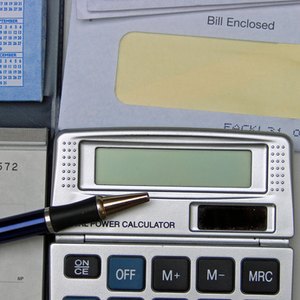
An informal budget circumvents the convention, calculations and approval processes of a traditional budget. In personal finance the term is often used as a definition for the use of cash only as a means of payment, and for many people it works. It allows them the freedom to maneuver funds where they are needed most without incurring more debt through the use of credit cards on impulse spending.
Budget Basics
A budget is an accounting for anticipated income and outtakes. It gives you an idea of how much you have to spend and what expenses, investments and wants you will have for a specific time frame, such as a year, a month or a week. The budget is based on historical data, such as pay stubs, utility bills and credit card receipts. The more detailed the financial picture the budget portrays, the better the odds that you can learn to live within budget and the better the chance you have accounted for all of your expenses.
Cash Budget
Rather than setting down expenses in a formal written format, you can create an informal budget process based on cash. Each month, label envelopes for each expense, such as rent, car payment, food. Remember to include an envelope for savings and one for entertainment. Write the amount needed to pay the bill on the envelope. Sort the envelopes in priority order with entertainment and other incidentals at the bottom of the pile. When you get paid, cash the check and divide the cash into each envelope. As you have accumulated the appropriate amount into each envelope, set it aside until the bill is due for payment.
Variance
A variance to the cash method of controlling your budget is to leave your money in your account, removing only what you feel you can afford for such discretionary expenses as food, entertainment and clothing for a week. If you run out of money before the end of the week, you are out of luck. Learn on-the-fly budgeting skills through repetition.
Phrase
Often the media refers to certain types of government and corporate meetings or analysis as "informal budget". This often refers to the type of meeting or analysis rather than the type of budget. Concerns arise about anything labeled as informal because it is an indicator that full policy or disclosure may not be in place and short cuts are taken in the budgeting process. For individuals this is an acceptable option but more care is expected with public and corporate funds.
Tips
No matter how informal your budget process, remember to account for long term cash outflows, such as vacations and insurance premiums that are paid annually.
If you find you run out of money consistently, look for ways to cut down expenses. For example, call the cable company and see if they have a cheaper price if you sign a contract, comparison shop insurance rates, or pack a lunch for work instead of eating out every day.
Contact utility companies about average pay programs. You will pay the same amount every month no matter the actual utility usage. This makes it easier to budget for the expense.

